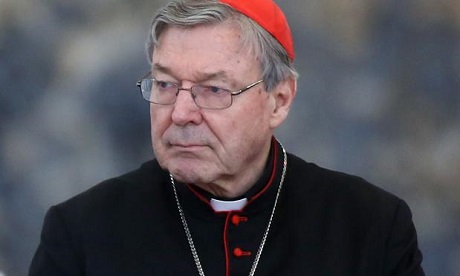Cardinal George Pell, who before his conviction of child sex abuse was the Vatican’s prefect of the Secretariat for the Economy, strongly opposed a 50 million euro loan request to purchase a bankrupt hospital.
His decision was endorsed by financial authorities at the Institute for Works of Religion, commonly called the Vatican Bank or IOR.
Despite this, the loan was subsequently approved by the Holy See’s central bank, APSA – possibly breaching international regulatory agreements.
Commenting on the situation, several Vatican officials say in 2014 Angelo Becciu and Giuseppe Versald were the cardinals who asked the IOR for the loan.
The loan would fund a for-profit partnership between the Holy See’s Secretariat of State and a religious order, to buy the order’s bankrupt Italian hospital.
The religious order had formed a new organisation with the Vatican Secretariat as its partner, in a bid to unburden itself from the hospital’s massive debts.
The loan proposal was rejected in 2015, when the IOR board decided the order would never be able to repay the loan.
Pell was reportedly vocally opposed to the loan proposal.
The cardinals then made a similar loan request to APSA, the Vatican’s central bank.
While APSA was considering the loan, Pell’s office, which oversaw APSA’S s portfolio, refused to sign off the transaction.
Nonetheless, the loan proceeded, possibly violating APSA’s international regulatory agreements.
A senior source at APSA says “there was no taking ‘no’ for an answer,” and that Versaldi and Becciu “passionately” insisted on the deal.
Becciu and Versaldi are said to have approached APSA for the loan because the bank had already shown itself resistant to the Vatican’s financial reforms.
The Secretariat of State, where Becciu was the second-ranking official, was also reportedly resistant to Pell’s efforts at financial transparency and reform.
After conflict over the loan, Pope Francis withdrew oversight authority over APSA’s investment decisions from Pell’s office. Multiple Vatican sources say that decision was strongly influenced by lobbying from Becciu.
Becciu was also responsible for cancelling a proposed external audit of all Vatican finances by PricewaterhouseCooper.
He also opposed Pell’s intention to end the practice of keeping some Holy See assets and funds “off books.”
The excuse they gave for objecting to the external audit was “because of the confidentiality required to conduct their work”.
Senior sources at the Prefecture for the Economy and APSA say the cancellation of the audit was also explained, in part, by promises that an independent audit of APSA was already planned.
Sources at APSA and the Prefecture say no audits have been conducted.
Instead, there has been a “good faith undertaking” between APSA and the Vatican’s Financial Information Authority.
Source
